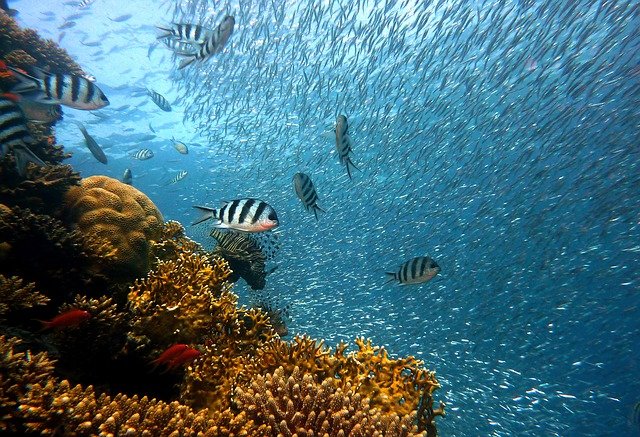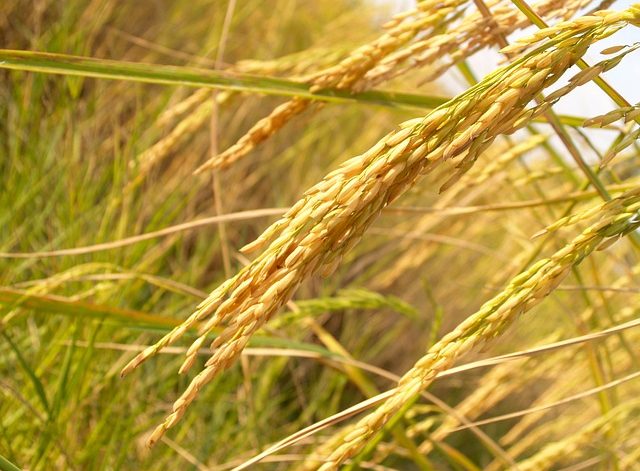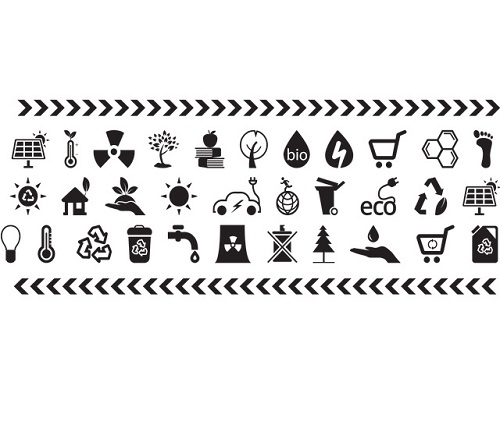INTRODUCTION
Coral Reef Biome: It is considered among marine biomes. It is a small biome that holds 25% of marine biodiversity. The coral reefs are usually found in the Persian Gulf, the Red Sea, the Caribbean Sea, the Indian Ocean, the Pacific Ocean, and near the Tropics of Cancer and Capricorn.
Characteristics of Coral Reef Biome: The coral reef biome of Pakistan is characterized by shallow water. The reef-building corals live in symbiosis with zooxanthellae. The coral reefs get nutrients from the algae and provide protection and compounds to zooxanthellae.
You might also like: Marine Pollution – Its Risky Effects on Marine Life & Humans
CORAL REEF BIOME OF PAKISTAN
Location of Coral reef Biome of Pakistan: It is present along with coastal areas of Pakistan. The known sites for the coral reef biome of Pakistan include Jiwani, Ormara (Rodrigues Shoals), Gawadar, Astola Island, and Churna Island.
Coral species that make up the coral biome of Pakistan are listed below.
| Serial No. | Islands of Pakistan | Coral Species |
| 1. | Astola Island | · Soft Coral: Paraplexaura sp., Bebryce sp., etc
· Hard Corals: Favites complanata, Porites monticulosa, Porites harrisoni, Montipora molli, etc |
| 2. | Chunra Island | · Goniopora columna
· Psammocora superficialis · Coscinaraea monile · Dendrophyllia robusta · Goniopora albiconus |
| 3. | Kaio Island | · Goniopora albiconus
· Porites harrisoni |
Climate of Coral reef Biome of Pakistan: The coral reef biome of Pakistan is characterized by warm ocean temperature. The summer temperature of the coral reef biome ranges from 20-30 ◦C while in winters the optimum temperature ranges from 13-23◦C.
BIODIVERSITY OF CORAL REEF BIOME OF PAKISTAN
A diverse variety of plants inhabits coral reefs that include seagrasses, seaweeds, zooxanthellae, etc. Animals include organisms that inhabit coral reefs, support the coral reef ecosystem, etc.
FLORA OF CORAL REEF ECOSYSTEM OF PAKISTAN: PLANTS/VEGETATION
| Serial No. | Plants Common Name | Scientific Name |
| 1. | Gulfweed | Sargassum |
| 2. | Brown Seaweed | Sargassum tenerrimum |
| 3. | Zooxanthellae | Symbiodinium |
| 4. | Anemone | Anemonastrum |
| 5. | Red Algae (Karachi Coast) | Laurencia karachiana |
| 6. | Sea lettuce | Ulva lactuca |
| 7. | Red Algae | Hypnea musciformis |
| 8. | Seaweed | Enteromorpha |
| 9. | Thalloid Brown Alga | Stypopodium shameelii |
| 10. | Seaweed | Dictyota implexa |
FAUNA OF CORAL REEF ECOSYSTEM OF PAKISTAN: ANIMALS
| Serial No. | Animal Common Name | Scientific Name |
| 1. | Green Turtle | Chelonia mydas |
| 2. | Hawksbill Turtle | Eretmochelys imbracata |
| 3. | Sandbird Octopus | Octopus’ cyanea |
| 4. | Sea Anemone | Actiniaria |
| 5. | Sea Urchins | Echinoidea |
| 6. | Ornate spiny lobster | Panulirus ornatus |
| 7. | Bridled Seabream | Acanthopagrus catenula |
| 8. | Arabian carpet shark | Chiloscyllium arabicum |
| 9. | Five-lined snapper | Lutjanus quinquelineatus |
| 10. | Bowmouth guitarfish | Rhina ancylostoma |
Also read: Threats to Natural Ecosystems – Causes, Effects, Management
THREATS TO CORAL REEF ECOSYSTEM OF PAKISTAN
The rainforest of the marine ecosystem is widely recognized as coral reefs. The coral reef biome has a rich biodiversity. However, the coral reefs are facing environmental problems.
Threats to the coral reef biome of Pakistan include human activities mainly marine pollution, oil spills overfishing, industrial effluent discharge, agricultural runoff, coastal area development, water pollution, rising sea surface temperature, sedimentation, etc.
Other factors that are threatening the survival of coral reefs include global warming, climate change, and coral mining.
Also check out: Coral Reef Destruction – Causes, Effects, and Solutions
IMPORTANCE OF CORAL REEF ECOSYSTEM OF PAKISTAN
The coral reef biome of Pakistan is extremely important because it indicates the water quality as well people use it for their livelihood. It supports a huge variety of species, some of which are newly discovered along the Karachi coast.
SPECIAL FEATURE OF CORAL REEF ECOSYSTEM OF PAKISTAN
The coral reefs found in Pakistan prefer hard substrate and rarely adapted to soft beds. The variety of hard substrates includes high ridges, mid-slope ridges, local ridges, mesas, upland drainage, mid-slope drainage, and canyons.
For information about other types of Biomes or Ecosystem Zones of Pakistan, check out this list of: Ecosystem Zones and Climatic Biomes of Pakistan.
I hope you all liked this post! Please comment below if you have any suggestions, comments, or feedback! We at #envpk love hearing from our readers! Thanks!




